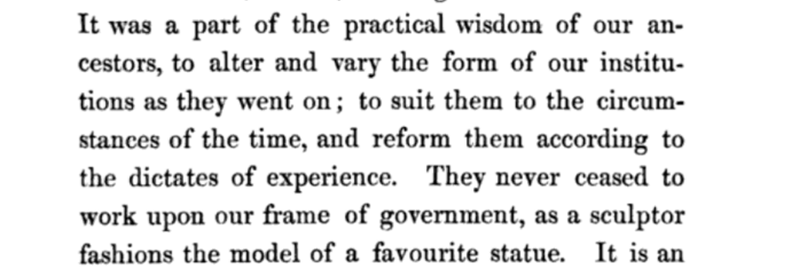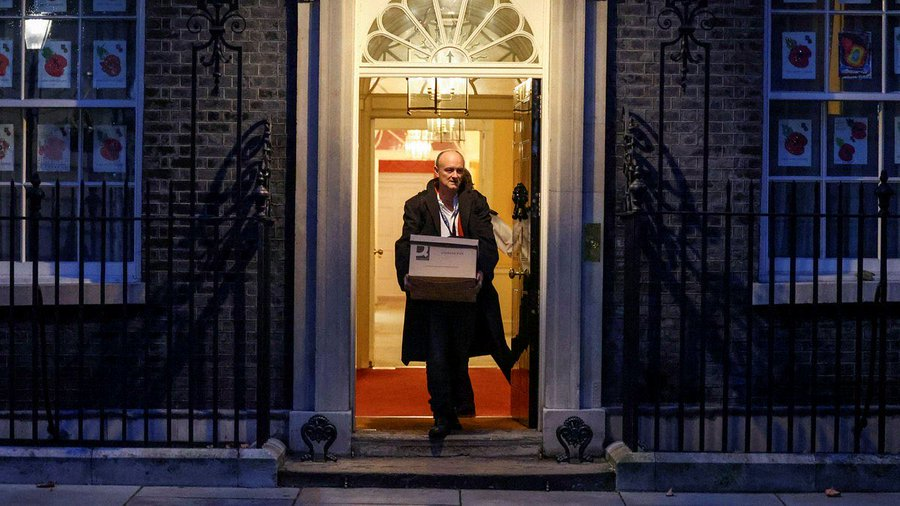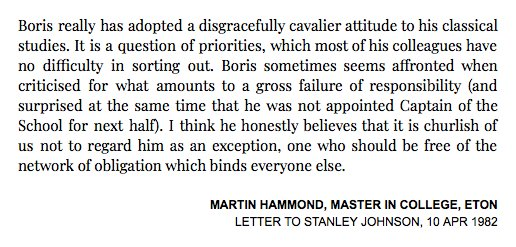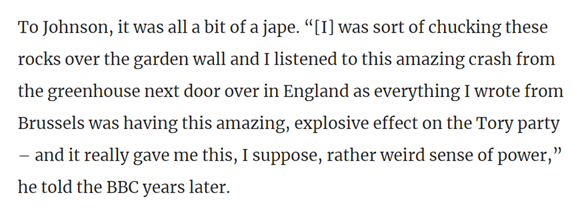
Britain's uncodified constitution seems more vulnerable to manipulation today than it was in the past. Why? The answer, I suggest, is about two ideas that were once central to British politics - one of which has gone Absent Without Leave. [THREAD]
2. The Victorians embraced two key ideas about the constitution. The first was that it should not be "fixed" or "rigid" but "flexible" & "organic". It should evolve with changes in society, constantly reworked -as Lord John Russell put it- like a sculptor with a favourite statue. 

3. Political writers praised the "elastic adaptability" of the constitution & its "irresistible instinct" for "the constant development of its institutions". The history of the constitution, wrote Macaulay, was a tale of "constant change in the institutions of a great society". 

4. The existence of a flexible constitution, able to adapt to changing times, was widely credited with Britain's lack of revolution. Unlike the Ancien Regimes of Continental Europe, the British had learned to "reform, that you may preserve". But that came with an important rider. 

5. If the first principle of the Victorian constitution was "flexibility", the second was "caution". In the age of the French Revolution, the US Civil War, the 1848 revolutions & the Paris Commune, the very existence of a functioning constitution was not to be taken for granted. 

6. Victorians knew how easily a constitution could collapse because they'd seen it happen: not in distant states of which they knew little, but in France, Germany & the USA. So constitutional change was to be approached with care & a vivid sense of the costs if things went wrong.
7. That sense of the constitution as something both precious and fragile endured into the 20th Century. Between the Wars, Britons watched as democracies across Europe collapsed into dictatorship. The fragility of democracy was a central theme of Baldwin's rhetoric in these years: 

8. These two principles operated in healthy tension. Constitutional reform was hailed as a patriotic tradition, but one to be approached with caution & a deep sense of the dangers involved. The goal, in Palmerston's words, was to steer between the rocks of reaction & revolution: 

9. The Victorians' reverence for the constitution is easy to parody, but it tempered some of the dangers of unlimited Parliamentary Sovereignty. Today, the constitution retains its flexibility - esp. for a govt with a healthy majority. What's gone missing is any sense of caution.
10. The current government seems to have no sense whatsoever that a constitution might be fragile. Losing votes in Parliament? Close it down! Don't like the Miller judgements? "Get the judges sorted". Don't like your own Withdrawal Agreement? Legislate to break the rule of law.
11.A constitution is not some musty document: it is the ecosystem in which our democracy lives & breathes. Yet ministers are hacking through it like loggers in the Amazon,burning the rainforest for a fast buck. They're trading short-term political gain for lasting ecological harm
12. International studies suggest that faith in democracy is dangerously low. The Times was wrong to suggest, last month, that "liberal democracy has historically proved a sturdy system". Historically, its lifespan has been comparatively brief & rarely continuous. It needs care. 

13. In recent years, we've seen liberal democracies succumb to authoritarianism in much of Eastern Europe. We are currently watching a US President attempt to overturn a democratic election by trashing faith in the ballot box. Democracies do not have a divine right to survive.
14.Britain desperately needs constitutional reform. But doing reform well requires careful thought, serious preparation & a refusal to treat the constitution as the plaything of the Executive. Constitutions are both precious & fragile. It's time to treat ours with more care. ENDS
• • •
Missing some Tweet in this thread? You can try to
force a refresh











